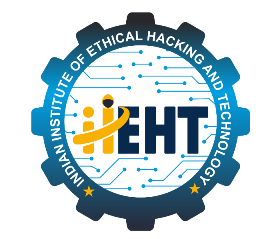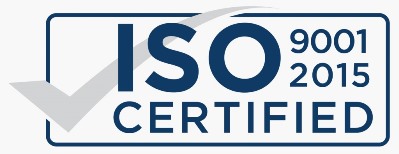What is a Certified Ethical Hacker?
Date: April 11, 2023

Certified Ethical Hacker (CEH)
Introduction
Ethical hacking procedures, preventative countermeasures, and attack vendors are complex concepts that are difficult for the average person to understand. The ability to build a safe infrastructure to thwart cyber-attacks is frequently lacking among business owners. When it comes to this, Certified Ethical Hacker (CEH) training is useful. By offering knowledge of a system's flaws and vulnerabilities, it shows you how a hacker will reason and behave when attempting to attack it. When it comes to reducing the danger of malicious hacker assaults, CEH teaches you how to secure your system and improve the security measures. The EC-Council awards the title of "Certified Ethical Hacker" (CEH), which can be earned by demonstrating one's proficiency in assessing the security of computer systems by looking for flaws and vulnerabilities in targets while employing the same tools and techniques as malicious hackers, but in a morally and legally correct manner. Organizations use ethical hackers to get into computer networks and systems in order to uncover and patch security flaws. The Certified Network Defense Architect certification is another one that the EC-Council offers (CNDA). This qualification is intended for United States Government agencies and is restricted to employees of a few chosen organizations, including some private government contractors, mostly in accordance with DOD. As a GCHQ Accredited Course, it is also ANSI accredited and acknowledged (GCT).
What is a Certified Ethical Hacker?
An expert who is trained to look into a system's flaws and vulnerabilities and attempt to protect it from harmful attacks is known as a Certified Ethical Hacker. When evaluating the security features of a particular system, a CEH employs the same equipment and skills as an illicit hacker but does so legally. The Certified Ethical Hacker course is intended to introduce a systematic approach to the ethical hacking field and provide people with the chance to learn the necessary information and abilities to become ethical hackers.
How Do You Become an Ethical Hacker?
The International Council of Electronic Commerce Consultants (EC-Council) oversees the Certified Ethical Hacker (CEH) certification. Security professionals that are interested in certification must take a 125-question ethical hacker exam that has been approved by the EC-Council. The following people are granted eligibility by the council:
• Professionals in information security or related subjects with at least two years of experience.
• Professionals who under the direction of the EC-Council completed the CEH training programme.
• A well-known cybersecurity accreditation that can lead to a variety of career prospects is the CEH certification. To succeed in the industry and become certified as an ethical hacker, one must be aware of the many stages involved.
Here is a quick guide on how to earn your ethical hacker certification.
1.Get a degree in an IT discipline
If you're interested in ethical hacker certification, you must first acquire a degree in an IT-related subject. The person will acquire the abilities and information required to work as an ethical hacker as a result of this. Computer science, computer engineering, information systems, or any other relevant field should be covered in the degree. This will give the person the groundwork they need to succeed in their job as an ethical hacker.
2.Enrol for the CEH Certification Exam
When a person has earned their degree, they are prepared to apply for the CEH Certification Examination. Anyone who wants to become an ethical hacker can take the CEH Certification Test, which is offered by the EC-Council. The exam covers subjects such hacking methods, defences, security concepts, and risk assessment. The exam is online and proctored at any time. It is crucial to remember that in order to be eligible to take the exam, the applicant must be at least 18 years old and possess a valid ID.
3.Cover the costs of CEH certification
After submitting an application for the CEH Certification Examination, a fee is due in order to sit for the test. Online credit card or PayPal payments are accepted for the ethical hacker certification fee. Before taking the exam, it must be paid.
4.Get CEH Certified-Ready
It's imperative to study for the CEH certification exam if you want to become a certified ethical hacker. The candidates must have a solid understanding of ethical hacking-related subjects such malware analysis, network security, application security, cloud security, and cryptography. The top candidates for the ethical hacking certification can study for the test using a variety of materials, including books, videos, and websites. Before taking the exam, it is imperative to read and practise the subject because it includes a variety of topics. For exam preparation, it is advised to use online tools like the EC-Council website or sample examinations.
5.Complete the CEH Test
The person is prepared to take the CEH Certification Test once they have paid the cost and studied for it. The test is given in several places, and candidates must show up at the test venue at least 30 minutes prior to the start time. The test comprises of 125 lots of questions, and the candidates have four hours to respond to them.
6.Reach the required standard.
To become certified ethical hackers, candidates must pass the CEH certification exam with a minimum score of 70%. The number of correct responses given by the applicants is used to determine their final score. The candidates must also succeed on the practical test to earn their certification as ethical hackers. The candidates have three hours to complete the 20 situations in the practical exam.
Job Description for a Certified Ethical Hacker
A big part of the developing IT security industry is played by Certified Ethical Hacker (CEH). Using preventive countermeasures, the CEH's job description entails thwarting harmful hacking efforts. In order to infiltrate systems and assure their security, ethical hackers employ a variety of methods and technologies. To strengthen the system's cybersecurity, the hackers employ the same tools used by hostile hackers to identify the system's flaws. In order to protect customer data, organisations use ethical hackers that have paid for Cyber Security training.
These are some of the duties included in a CEH's job description
• With the clients, go over the security system.
• Investigate the company's identity, network, potential entry points, etc.
• Do various system penetration tests.
• Find and record security holes and weaknesses.
• Locate regions with high security.
• The security network is rated or reviewed.
• After examination, suggest security enhancements.
• Prepare reports from penetration tests and deliver them to the client.
• Doing penetration tests after putting new security measures into place.
• Provide different security improvements.
Skills for Certified Ethical Hackers
In order for individuals to succeed in this sector, they must be familiar with the abilities needed to earn an ethical hacker certification. So what do ethically responsible certified hackers do? The following list of abilities is a partial list of those needed for ethical hacking.
• Networking and Computer Skills
The essential requirements for being an ethical hacker are adequate networking and computer system expertise. In order to fight against attacks in the future, applicants need to be familiar with the fundamental concepts of both fields.
• Operating System
Another essential ability needed to become an ethical hacker is operating system knowledge. If you desire a CEH certification, you must study about ideas like Linux, Red Hat, Ubuntu, etc.
• Penetrating Inspection
To become a certified ethical hacker, you need practical experience as well as knowledge of the tools and procedures used in penetration testing.
• Coding Expertise
To be successful in the ethical hacking sector, you need to have good programming skills. You can receive specialized instruction in decoding or analysing codes to find their sinister weaknesses.
• Online safety
To succeed in the field of ethical hacking, it is crucial that you comprehend topics related to cybersecurity, such as antivirus, database administration, password management, etc.
• Resolving issues
The complexity of cyberattacks has increased over time and with technical development. So, in order to address problems and challenges as an ethical hacker, you must possess critical and analytical reasoning abilities.
Qualification as a Certified Ethical Hacker
The 11th version of the Certified Ethical Hacker (CEH) certification, commonly known as the CEH v11, is currently available. The latest hacking tools, approaches, strategies, etc. that security experts and hackers use to lawfully hack a business are taught to the applicants in this course. A CEH-certified ethical hacker is now defined as what? To comprehend the work of a CEH-certified hacker, we will go over the crucial updates linked to CEH v11 below:
• Parrot security OS:
When used on laptops and other low-powered devices, the operating system performs better. In-depth knowledge of a bigger collection of OS utilities is also made available.
• NICE/NIST Framework:
The NICE/NIST Framework's job category is covered by a number of important specialty areas in CEH v11, including positions for Protect and Defend (PR), Analyse (AN), and Security Provision (SP).
•Cloud Security, OT, And IoT Modules:
To incorporate container technologies, cloud computing risks, and IoT hacking tools, CEH v11 incorporates enhanced IoT and information protection modules.
• Risks of Cloud Computing:
Misconfigured cloud systems make it difficult for organizations to defend themselves against data security theft occurrences. Cloud-based threat detection, mitigation, and avoidance are made easier with CEH v11.
• Risks from IoT:
The CEH v11 certification, which covers the most recent IoT hacking tools, can teach you how to fight against IoT-based assaults in private cloud services.
• OT Attacks:
The advanced skills in CEH v11 can help you develop the IT, IIoT, and OT competence you need to safeguard crucial operational technology deployments.
• Malware analysis:
The most recent malware analysis tools and methodologies for accounting, economic spyware, cybercrime, OT malware analysis, etc. are included in CEH v11.
New Operating Systems:
The most recent versions of operating systems, including firewalls, domain controllers, and other vulnerable web applications, are included in CEH v11. They include Windows Server 2016, Windows Server 2019, Windows 10, and others. If you want to pass the test, you must correctly respond to 70% of the problems.
Remuneration of a Certified Ethical Hacker
The demand for Certified Ethical Hackers (CEH), one of the highest-paid specialists, is enormous across several industries. A certified ethical hacker makes, on average, $105,329. The compensation ranges from $93,961 to $120,164 each year. An ethical hacker makes an average salary of Rs. 509,679 in India. An average hacker makes between Rs. 29,000 and Rs. 41,000 per month.
Conclusion
The Certified Ethical Hacker (CEH) certification enables security experts to recognize and comprehend the potential dangers to a system. It assists them in learning the equipment, innovations, and defense strategies needed to fight off attacks from malevolent hackers and other security system dangers. The most recent edition of the online certification programme, CEH v11, is accessible. A certified ethical hacker's job is to evaluate the security measures in place at a company, identify any threats, and recommend security measures to counter those threats. Threats to IT security have evolved over time to become more sophisticated. As a result, given their extensive knowledge and practical expertise, certified ethical hackers can aid defense against such challenges.



